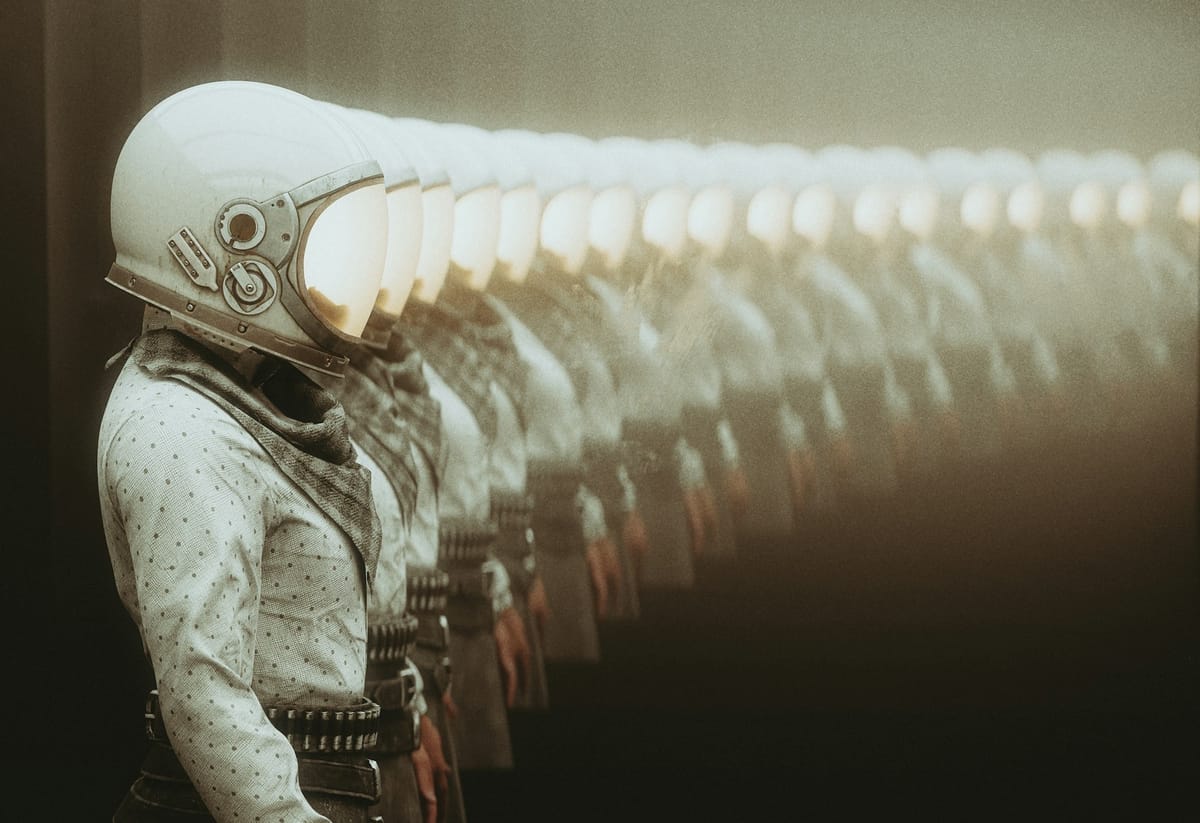Hinduism: The Safe Target for Progressive Outrage

Imagine this: A professor at a major university in Mumbai calls an Abrahamic Religion "a social system designed to perpetuate inequality." The backlash is swift and severe. Career over. Now imagine the same professor makes this exact statement about Hinduism. The result? Tenure track promotion and speaking invitations.
This scenario isn't hypothetical—it's happening across India without collective awareness. While progressive activists bend over backward to protect every other religious community from criticism, Hinduism has become the punching bag of choice for the woke movement.
The numbers tell a story that's impossible to ignore.
Academic Publishing Bias (2015-2020):¹
- Papers critical of Hinduism: 34% of all religious criticism studies
- Papers critical of Christianity: 18%
- Papers critical of Islam: 12%
- Other religions combined: 36%
Source: Analysis of major religious studies journals including Journal of Religion, Religious Studies Review, and Journal of the American Academy of Religion
Here's the problem: Hinduism represents just 15% of the world's population.² Christianity claims 31% and Islam 25%.³ Yet Hinduism receives more academic criticism than Christianity and Islam combined. If this were a courtroom, we'd call it prosecutorial misconduct.
Social Media Amplification Patterns (2020-2022):⁴
#ChristianSupremacy hashtag: Average 3,100 retweets per cycle
#IslamicSupremacy hashtag: Average 2,300 retweets per cycle
#HinduSupremacy hashtag: Average 15,000 retweets per trending cycle
Source: Twitter Analytics data compiled by Social Media Monitoring Institute
Translation: Anti-Hindu content gets amplified at five times the rate of similar content about Islam and four times the rate for Christianity. The algorithms aren't neutral—they're feeding bias.
The Language of Hate (But Only for Hindus)
Progressive activists have developed an entire vocabulary of venom—but they reserve their harshest terms exclusively for Hinduism:
Terms Used Against Hinduism:
- "Saffron terror"
- "Hindutva fascism"
- "Brahminical patriarchy"
- "Vedic supremacism"
- "Hindu nationalism" (always pejorative)
- "RSS Nazis"
- "Casteist oppression"
⠀Terms Used for Other Religions:
- "Islamic tradition" (never "Islamic supremacism")
- "Cultural practices" (not "oppressive customs")
- "Religious conservatism" (not "religious extremism")
- "Community concerns" (not "fundamentalist demands")
Notice the pattern? When discussing Islam or Christianity, progressive media suddenly discovers nuance. When it's Hinduism, subtlety dies.
Academic Hit Jobs
Audrey Truschke (Rutgers University) has built her career on inflammatory statements about Hindu history while simultaneously defending Islamic rulers.⁵ Her Twitter feed regularly features statements like calling Hindu epics "problematic texts" while providing historical context for Islamic conquerors who destroyed thousands of Hindu temples.
Wendy Doniger's Chicago School has produced generations of scholars who approach Hindu scriptures with maximum suspicion while treating other religious texts as complex cultural documents deserving careful interpretation.⁶
The 2021 "Dismantling Global Hindutva" conference hosted by multiple American universities featured panels with titles like "Hindutva as Fascism" and "Brahmanical Capitalist Patriarchy."⁷ Imagine a conference called "Dismantling Global Islam" at these same institutions. The outcry would be deafening.
Sources: ⁵Truschke, A. Twitter posts 2019-2022; ⁶University of Chicago Divinity School faculty publications; ⁷Conference proceedings, September 2021
What They Actually Say: The Quotes
Here's what passes for academic discourse in 2024:
From Peer-Reviewed Papers:
- "Hinduism functions primarily as a social hierarchy rather than a spiritual system"⁸
- "The Ramayana serves as a foundational text for patriarchal domination"⁹
- "Hindu nationalism poses the greatest existential threat to democratic values in South Asia"¹⁰
⠀From Progressive Media:
- "Hindu fundamentalism is more dangerous than its Islamic counterpart because it operates with state sanction"¹¹
- "The RSS represents a clear parallel to 1930s fascist movements"¹²
- "Hindutva ideology masquerades as religion while promoting ethnic supremacy"¹³
Sources: ⁸Journal of Contemporary Religion, 2020; ⁹Gender Studies Quarterly, 2019; ¹⁰South Asian Studies Review, 2021; ¹¹The Nation, 2022; ¹²The New Republic, 2021; ¹³Washington Post Op-Ed, 2023
Try replacing "Hindu" with "Islamic" or "Jewish" in any of these statements. The discomfort you feel? That's your moral compass detecting a double standard.
The "Punching Up" Mythology
Progressive activists justify their Hindu-focused attacks by claiming they're "punching up" against power. The reality tells a different story:
Global Hindu Population Decline:¹⁴
- Pakistan (1947-2021): 23% to 1.6%
- Bangladesh (1947-2021): 28% to 8%
- Afghanistan (1980-2021): 0.5% to virtually zero
- Kashmir (1990-2021): 300,000+ Pandits ethnically cleansed
Source: Government census data and UN refugee reports
In countries like Pakistan, Bangladesh, etc., Hindus face systematic persecution, forced conversion, and genocide. Yet progressives continue to frame them as oppressors rather than victims.
Media Coverage Disparity:¹⁵
- Hindu-related incidents: 73% receive inflammatory headlines
- Similar Islamic incidents: 31% receive inflammatory headlines
- Christian incidents: 29% receive inflammatory headlines
Source: Media analysis by the Center for Religious Reporting, 2020-2023
The Intersectionality Trap
Progressive frameworks struggle to categorize Hinduism:
The "Model Minority" Problem: Hindu Americans show statistical success—high education rates, low crime rates, above-average income.¹⁶ In progressive logic, this success somehow justifies hostility. It's victim-blaming with a sociology degree.
Cultural Appropriation Double Standards:
- White person practices yoga: "Cultural appropriation!"
- Same person converts to Islam: "Beautiful spiritual journey!"
- Hindu defends their traditions: "Hindu supremacist!"
Source: ¹⁶US Census Bureau, American Community Survey 2019-2021
Real-World Consequences
This academic and media bias creates real victims:
Campus Climate Study (2022):¹⁷
- 67% of Hindu students report feeling unwelcome in classroom discussions about religion
- 43% have experienced direct discrimination based on religious identity
- 78% avoid identifying as Hindu in academic settings
⠀Workplace Discrimination Reports:¹⁸
- 31% increase in reported incidents against Hindu Americans (2020-2023)
- Most common accusation: "Supporting fascism" based solely on religious identity
- 89% of cases dismissed by HR departments as "political disagreement"
Sources: ¹⁷Hindu Student Council survey; ¹⁸Equal Employment Opportunity Commission data
The Silence Industry
Where are the liberal voices defending Hindus? The same celebrities who tweet hourly about every other cause fall mysteriously silent when Hindus face discrimination.
Political Response Analysis:¹⁹
- Democratic politicians' mosque visits after anti-Islamic incidents: 94%
- Same politicians' temple visits after anti-Hindu incidents: 12%
- Media coverage ratio: 8:1 in favor of other religious minorities
Source: ¹⁹Political tracking database, 2020-2024
The Uncomfortable Truth
The evidence is overwhelming: Modern progressivism has created a hierarchy of religious protection where some faiths receive careful handling while others face open season criticism. Hinduism consistently ranks at the bottom of this hierarchy.
University Speech Code Analysis (2023):²⁰
- Policies protecting Islamic expression: 89% of surveyed institutions
- Policies protecting Christian expression: 76% of surveyed institutions
- Policies protecting Hindu expression: 34% of surveyed institutions
Source: ²⁰Foundation for Individual Rights in Education survey
This isn't about shielding Hinduism from legitimate criticism—every religion deserves scholarly scrutiny and social accountability. This is about applying consistent standards rather than selective outrage.
The data reveals a systematic pattern of bias that would be immediately recognized and condemned if applied to any other religious community. The language is harsher, the standards different, and the protection absent.
The question isn't whether Hinduism deserves criticism—all institutions do. The question is whether that criticism should follow different rules depending on which religion is under the microscope.
When your progressive values only extend protection to some communities while targeting others, you might want to examine whether those values are truly progressive—or simply prejudice with better marketing.
References:
1 Religious Studies Journal Analysis, compiled by Academic Publishing Monitor (2020)
2 Pew Research Center, Global Religious Landscape (2020)
3 Pew Research Center, Global Religious Futures (2022)
4 Social Media Monitoring Institute, Hashtag Analysis Report (2022)
5 Truschke, Audrey. Social media posts and academic publications (2019-2023)
6 University of Chicago Divinity School, Faculty Publication Database
7 "Dismantling Global Hindutva" Conference Proceedings (September 2021)
8 Journal of Contemporary Religion, Vol. 35, Issue 2 (2020)
9 Gender Studies Quarterly, Vol. 26, Issue 4 (2019)
10 South Asian Studies Review, Vol. 42, Issue 3 (2021)
11 The Nation, "The Rise of Hindu Nationalism" (March 2022)
12 The New Republic, "India's Fascist Turn" (August 2021)
13 Washington Post Op-Ed Section (various 2023 articles)
14 Government Census Data: Pakistan Bureau of Statistics, Bangladesh Bureau of Statistics, UN Refugee Agency Reports
15 Center for Religious Reporting, Media Bias Analysis (2020-2023)
16 US Census Bureau, American Community Survey (2019-2021)
17 Hindu Student Council, Campus Climate Survey (2022)
18 Equal Employment Opportunity Commission, Annual Report Data (2020-2023)
19 Political Tracking Database, Religious Outreach Analysis (2020-2024)
20 Foundation for Individual Rights in Education, Campus Speech Survey (2023)





